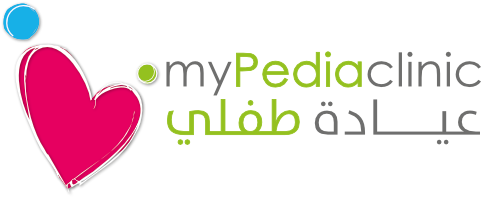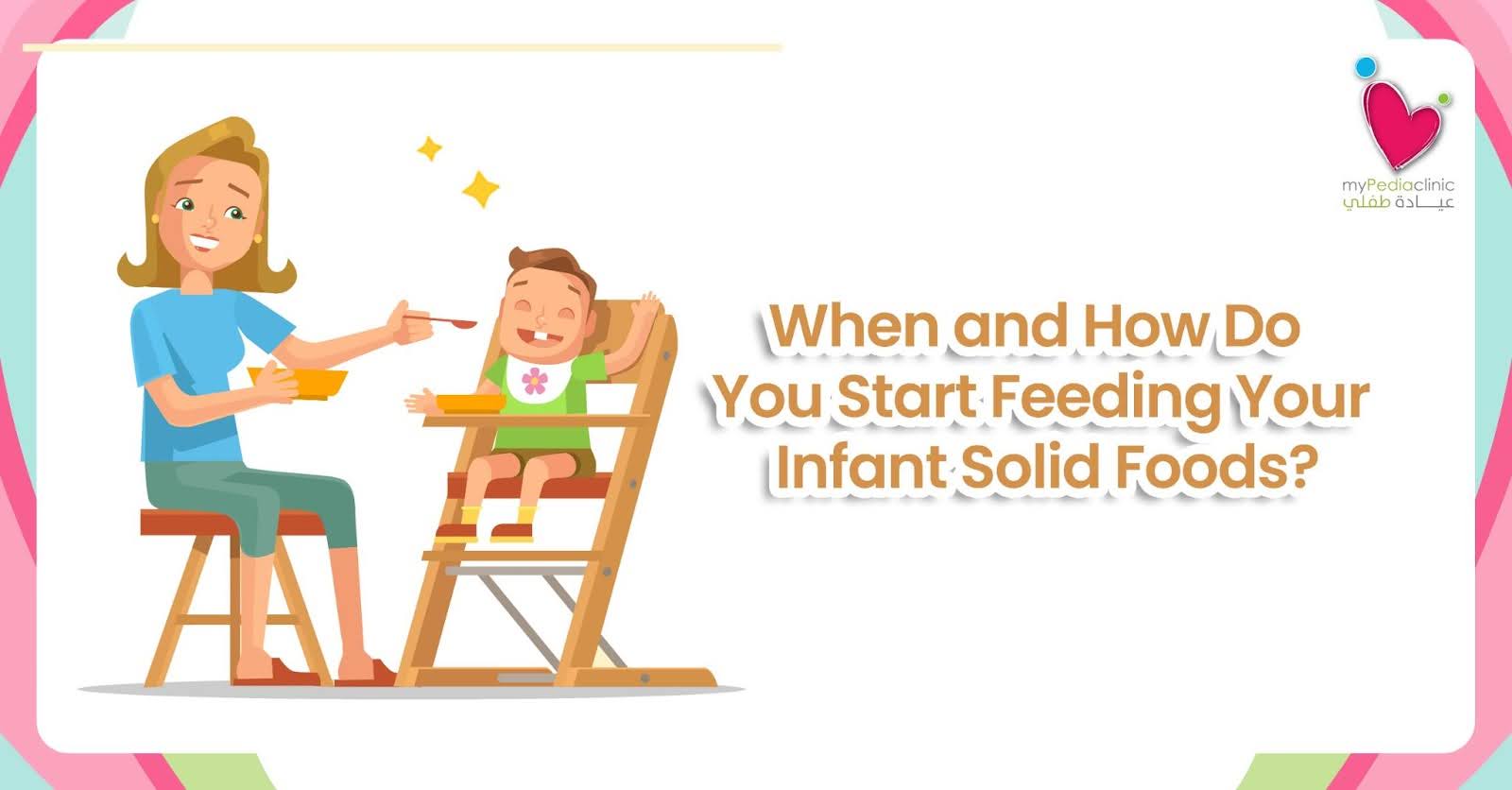When Should You Start Introducing Solid Foods to Your Baby?
Introducing solid foods to your baby marks a significant milestone in their growth and development journey. This transition from exclusive breast milk or formula feeding to a varied diet of solid foods is an exciting time filled with new tastes, textures, and experiences. While this transition is important for your infant’s health and development, it must be done with proper knowledge and guidance from a pediatric nutritionist in Dubai to ensure your child’s well-being.
Understanding when and how to introduce solids safely helps parents navigate this crucial developmental stage confidently, setting the foundation for healthy eating habits that last a lifetime.
Recommended Age for Starting Solid Foods
The World Health Organization (WHO), American Academy of Pediatrics (AAP), and nutritionists in Dubai recommend exclusively breastfeeding infants for the first six months of life. Around six months of age, an infant’s nutritional needs begin exceeding what breast milk or formula alone can provide, particularly for essential nutrients like iron and zinc.
At approximately six months, babies develop the physical and neurological capabilities necessary for safely consuming solid foods. Starting solids too early, before four months, increases risks of choking, digestive problems, and food allergies. Delaying beyond seven months may result in nutritional deficiencies and feeding difficulties.
Signs Your Baby is Ready for Solid Foods
Rather than relying solely on age, watch for developmental readiness signs indicating your infant can safely begin solids. Most babies show these signs between 5-7 months:
Physical Development Indicators
- Head control: Your baby can hold their head up steadily without support for extended periods
- Sitting ability: Your infant can sit upright when supported in a high chair or feeding seat
- Loss of tongue-thrust reflex: The automatic reflex that pushes food out of the mouth diminishes, allowing food to be moved to the back of the mouth for swallowing
- Increased neck and trunk strength: Your baby demonstrates good posture control when seated
Behavioral Readiness Signs
- Increased appetite: Your baby seems hungrier than usual, even with frequent breastfeeding or formula feeding, and doesn’t seem satisfied after milk feeds
- Interest in food: Your infant watches intently when you eat, reaches for food on your plate, or leans forward when food is nearby
- Hand-to-mouth coordination: Your baby can pick up objects and bring them to their mouth deliberately
- Opening mouth when food approaches: Your infant opens their mouth eagerly when you offer a spoon
All these signs should be present before introducing solids. If only some are evident, continue exclusive milk feeding and reassess in 1-2 weeks.
First Foods: What to Offer and When
6 to 9 Months: Building the Foundation
The best dietician in Dubai recommends starting with iron-rich foods as your infant’s iron stores from birth begin depleting around six months. First foods should provide this essential nutrient along with other key vitamins and minerals.
Ideal First Foods Include
- Iron-fortified infant cereals mixed with breast milk or formula to a smooth, thin consistency
- Pureed meats including chicken, turkey, or beef providing bioavailable iron
- Pureed or mashed legumes such as lentils and beans
- Pureed vegetables like sweet potatoes, carrots, squash, and peas
- Mashed fruits including avocado, banana, and cooked apple or pear
According to the American Academy of Pediatrics, variety is important even at this early stage. Introduce fruits, vegetables, and several textures to help babies accept diverse foods. Offer both fruits and vegetables from the beginning rather than only sweet fruits, which might reduce vegetable acceptance later.
Beyond 9 Months: Expanding Variety
Once your child reaches nine months and has experience with various single foods, start offering 2-3 healthy, nutrient-rich foods at each meal. Maintain balance by including fruits and vegetables daily along with proteins, whole grains, and healthy fats.
Textures should gradually progress from smooth purees to mashed foods with small soft lumps, then to finely chopped table foods. This texture progression supports oral motor skill development essential for chewing and speech.
How to Safely Introduce Solid Foods
Start with Iron-Rich Options
The first foods recommended by pediatric nutritionists for your infant should be rich in iron. Iron-fortified infant cereal or pureed meat can be mixed with breast milk, formula, or water to create a smooth consistency that’s easy for your baby to swallow.
Begin with a very thin consistency, gradually thickening as your baby becomes comfortable with swallowing solids. This gradual progression helps babies adjust to new textures without frustration or choking risks.
Introduce Single-Ingredient Foods
Offer single-ingredient foods one at a time, introducing them for three consecutive days before trying another new food. This approach helps identify foods that cause allergic reactions or digestive upset.
If your baby develops a rash, vomiting, diarrhea, or unusual fussiness after introducing a food, you can easily identify the culprit. Wait and try again in a few weeks, consulting your pediatrician if reactions are severe.
Progress Texture and Consistency Gradually
Begin with pureed, very soft, or mashed foods. As your baby becomes comfortable swallowing solids and develops tongue movements and jaw strength, gradually make textures thicker and lumpier.
By 8-10 months, most babies can manage soft finger foods and foods with small, soft lumps. By 12 months, many can eat finely chopped versions of family foods. This progression supports oral motor development while maintaining safety.
Encourage Self-Feeding from the Start
As your infant grows comfortable with solids, encourage self-feeding using fingers. Offer soft, bite-sized pieces of fruits, vegetables, and other suitable foods that promote fine motor skill development.
Self-feeding helps babies develop hand-eye coordination, encourages independence, allows babies to control pace and amount, and helps them learn to stop eating when full. Expect messiness; it’s a normal, important part of learning to eat.
Introduce Potential Allergens Early
Current research shows that introducing potential allergens including peanuts, eggs, fish, dairy, soy, wheat, tree nuts, and sesame between 4-6 months, once a few first foods are tolerated, may actually reduce allergy risks compared to delayed introduction.
The best nutritionist in Dubai advises offering these foods in age-appropriate forms. For example, mix thin peanut butter with breast milk or formula, or offer well-cooked scrambled eggs. Introduce one new allergen at a time, watching closely for reactions.
Signs of allergic reaction include hives or rash, swelling of face, lips, or tongue, vomiting or diarrhea, difficulty breathing, and unusual fussiness or crying. Severe reactions require immediate medical attention. Keep a food diary noting what your child consumes for the first time so you can easily identify which food triggered any allergic response.
Maintain Breast Milk or Formula as Primary Nutrition
During the first year, breast milk or formula should remain your baby’s primary nutrition source. Solids complement milk feeds but don’t replace them until after 12 months.
Continue breastfeeding on demand or offering formula according to your baby’s hunger cues. Gradually, as solid food intake increases, milk consumption will naturally decrease, but this transition should happen slowly over many months.
Creating Positive Feeding Experiences
Make Mealtimes Enjoyable and Low-Pressure
Create a positive, stress-free feeding environment. Allow your baby to explore food at their own pace, which may include touching, squishing, and playing with food before eating it. This sensory exploration is valuable learning.
Never force your baby to eat. Respect their hunger and fullness cues. Babies naturally eat varying amounts from meal to meal; this is normal and healthy.
Eat Together as a Family
Whenever possible, have your baby join family meals even before they eat significant amounts. Babies learn by watching, and seeing family members eat various foods encourages acceptance and interest.
Demonstrate healthy eating behaviors yourself, showing enthusiasm for vegetables, fruits, and whole grains. Your attitude toward food significantly influences your baby’s developing food preferences.
Avoid Distractions During Feeding
Turn off televisions and tablets during meals. Distractions interfere with your baby learning to recognize hunger and fullness signals and reduce attention to food tastes and textures.
Focus feeding time on the social experience of eating together and exploring new foods.
Foods to Avoid in the First Year
Certain foods pose risks for infants and should be avoided:
- Honey (risk of botulism) – wait until after 12 months
- Whole cow’s milk as a beverage – wait until 12 months (small amounts in cooking are fine)
- Choking hazards including whole grapes, cherry tomatoes, hot dogs, hard candies, popcorn, nuts, and chunks of hard raw vegetables or fruits
- Added salt and sugar – babies don’t need added seasonings
- Fruit juice – offers no nutritional advantage over whole fruit and contributes to tooth decay
Recognizing and Preventing Choking Risks
Choking is a serious risk when introducing solids. Always supervise your baby during eating and ensure proper safety measures:
- Always seat your baby upright in a high chair, never feed while lying down or in a car seat
- Cut foods into appropriate sizes – smaller than a pea for beginners, gradually increasing as chewing skills develop
- Avoid hard, round, or sticky foods that pose choking risks
- Ensure your baby is alert and not overly tired during feeding times
- Learn infant CPR so you’re prepared for emergencies
Gagging is different from choking and is a normal protective reflex as babies learn to eat. Gagging sounds noisy with coughing, while choking is silent. If your baby gags, remain calm and allow them to work through it without intervening unless it progresses to choking.
Consulting with Pediatric Nutrition Experts
Always consult with your pediatrician or pediatric nutritionist in Dubai before beginning solid foods, especially if your child has health issues, there’s a family history of food allergies, or your baby was born prematurely.
Healthcare professionals provide personalized guidance and support throughout this process, addressing your specific questions and concerns. Regular well-child visits monitor your baby’s growth and development, ensuring nutrition is adequate.
Frequently Asked Questions About Starting Solids
1. Can I start solids before six months if my baby seems ready?
While six months is the general recommendation, babies showing all readiness signs may start between 4-6 months with pediatrician approval. Never start before 4 months as the digestive system and developmental readiness are insufficient. Discuss timing with your healthcare provider based on your baby’s individual development.
2. What if my baby refuses solid foods initially?
This is completely normal. Many babies take time to adjust to new tastes and textures. Continue offering small amounts without pressure. It may take 10-15 exposures before a baby accepts a new food. Ensure your baby is hungry but not overtired when offering solids. Try different times of day and remain patient and positive.
3. How much solid food should my baby eat?
Start with just 1-2 teaspoons once daily, gradually increasing to 2-3 meals daily by 8-9 months. Amounts vary significantly between babies. Follow your baby’s hunger and fullness cues rather than worrying about specific quantities. By 12 months, many babies eat 3 meals plus 1-2 snacks, but individual variation is normal and healthy.
4. Should I make homemade baby food or use commercial products?
Both options are fine. Homemade foods allow control over ingredients and can be more economical, while commercial baby foods offer convenience and are nutritionally adequate. Many families use both. If making homemade food, ensure proper preparation and storage to prevent foodborne illness. Avoid adding salt, sugar, or seasonings.
5. What if my baby has digestive issues when starting solids?
Mild changes in stool frequency, color, and consistency are normal when introducing solids. However, persistent diarrhea, severe constipation, excessive gas and discomfort, blood in stool, or vomiting warrant consultation with your pediatrician. These symptoms may indicate food intolerance or allergy requiring professional evaluation.
Expert Infant Nutrition Guidance at myPediaclinic Dubai
At myPediaclinic, our experienced pediatricians and nutritionists in Dubai provide comprehensive support and guidance for families during the crucial stages of early child development, including transitioning to solid foods.
Our pediatric nutrition experts help you understand when your baby is ready for solids, which foods to introduce first, how to identify and manage food allergies, and how to establish healthy eating patterns from the beginning.
We offer personalized feeding plans tailored to your baby’s developmental stage, individual needs, and your family’s cultural food preferences. Our approach respects diverse eating traditions while ensuring optimal nutrition.
Beyond nutrition counseling, our pediatricians monitor your baby’s growth and development through regular well-child visits, ensuring that the transition to solid foods supports healthy growth trajectories.
We believe in empowering parents with knowledge and confidence. Our team takes time to answer your questions, address concerns, and provide practical strategies that work in real life, not just in theory.
Contact myPediaclinic today to schedule a consultation with our infant nutrition specialists. Let us support your journey in establishing healthy eating foundations that will benefit your child throughout life.





